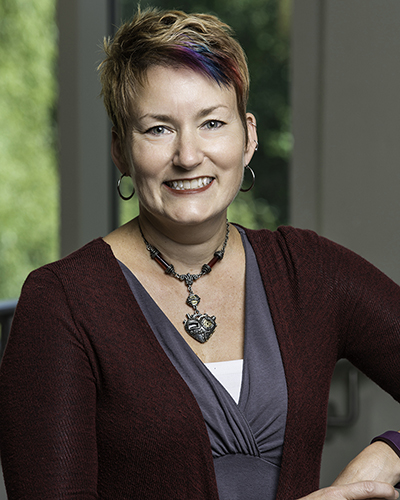Oxford Bound
July 24, 2020
By Jerome Boettcher
FAIRFAX, Va. – George Mason University Professor Erin Peters-Burton has received a prestigious Astor Visiting Lectureship Award from the University of Oxford in England.
Peters-Burton, the Donna R. and David E. Sterling Endowed Professor in Science Education in George Mason University’s College of Education and Human Development (CEHD), will serve as a featured speaker during a weeklong lecture series at the University of Oxford. The lectureship was originally scheduled for this year but was postponed due to the pandemic and is tentatively set for November 2021.
“I’m absolutely thrilled,” said Peters-Burton, who is also the director of the Center for Social Equity through Science Education at CEHD. “This is such a wonderful opportunity. I’m really honored and thrilled I get the opportunity to work with scholars at Oxford. This is just a dream come true.”

Erin Peters-Burton
At the center of her weeklong lectures will be a presentation on the theoretical and empirical potential of epistemic network analysis to the University of Oxford’s Department of Education. Epistemic network analysis, a relatively new methodology, identifies and quantifies connections in data and creates visual representations of these connections (network models). It visualizes connections among the features of a phenomenon and quantitatively describes the structure of the connections. A researcher can then identify hierarchies, clusters, and migration of elements in a phenomenon.
In addition to her keynote presentation, Peters-Burton will speak to the Department of Social Policy and Intervention about broadening participation in STEM education. She will provide lessons learned from educational research of STEM secondary and primary schools in a lecture to students at St. Cross College, an all-graduate student college within the University of Oxford.
“I am delighted that Professor Erin Peters-Burton has been awarded the prestigious Astor Lectureship,” University of Oxford Professor Sibel Erduran said. “We are looking forward to her lectures to be delivered at the Department of Education, St Cross College, and the Department of Social Policy and Intervention.”
She will also conduct seminars for doctoral students, pre-service and in-service teachers, and faculty at the University of Oxford. She will be hosted by Erduran, with whom Peters-Burton is currently collaborating on research focusing on the use of epistemic network analysis to investigate science teachers’ and students’ perceptions of the nature of science.
“This lectureship is an honor for Dr. Peters-Burton and a testament to the impact and reach of her work,” said Amy Hutchison, director of the Division of Elementary, Literacy, and Secondary Education in CEHD. “Dr. Peters-Burton has made a tremendous impact in science education at Mason and beyond with numerous books, grants, and publications that are referenced worldwide. We are privileged to have such an influential colleague in the Division of Elementary, Literacy, and Secondary Education at Mason.”
Peters-Burton, who received her PhD from George Mason in 2008, has been a faculty member at CEHD for the last 14 years, starting as an adjunct faculty member in 2006. She served as division director for the Division of Educational Psychology, Research Methods, and Educational Policy from 2014-17 in addition to holding the title of academic program coordinator for the Educational Psychology program during that timeframe.
In 2017, she was named the Donna R. and David E. Sterling Endowed Professor in Science Education. She is currently a professor in the Secondary Education program in the Division of Elementary, Literacy, and Secondary Education. She also is the founder and director of the Center for Social Equity through Science Education.
In 2006, prior to her time at Mason, Peters-Burton was selected as an Albert Einstein Distinguished Educator Fellow for NASA where she advised the agency in their development of curriculum for teachers across the United States. Her work at NASA led her to be chosen as a member of the committee developing the first K-12 National Engineering Standards.
Having spent more than 16 years as a science teacher at public schools in Arlington and Chicago, she is passionate about classroom research surrounding developing student scientific epistemologies and computational thinking. She continues to develop research projects that investigate ways that students, particularly those underrepresented in STEM fields, and teachers can use self-regulation strategies to learn scientific knowledge and to think like scientists and engineers.
With her background as a teacher and scholar, she describes herself as a specialist in STEM education “through an educational psychology lens.”
“Within educational psychology I’m always interested in how you measure things accurately,” Peters-Burton said. “The reason I got involved in epistemic network analysis is that prior measures in the field of nature of science, which is epistemic understandings of science, have been really limited and not connected. What I wanted to do is see connections between these ideas and not just the ideas themselves.”
